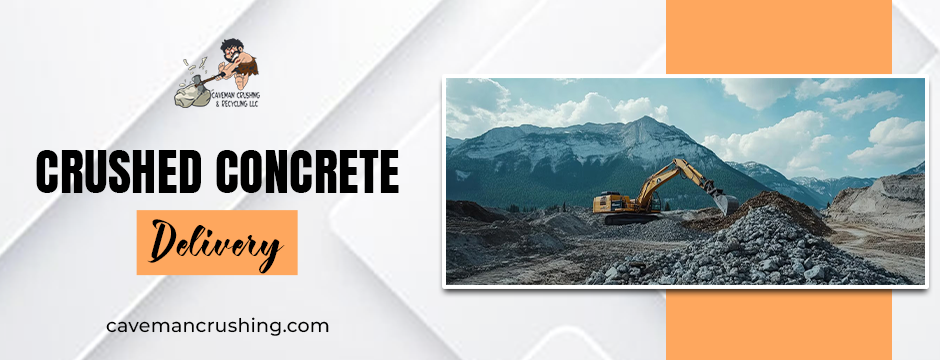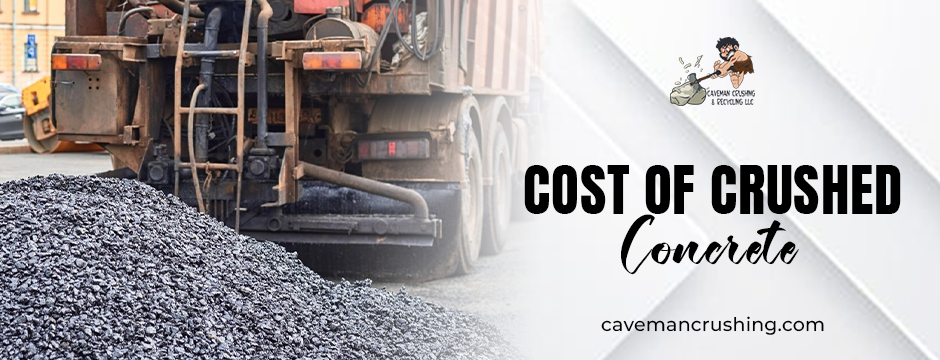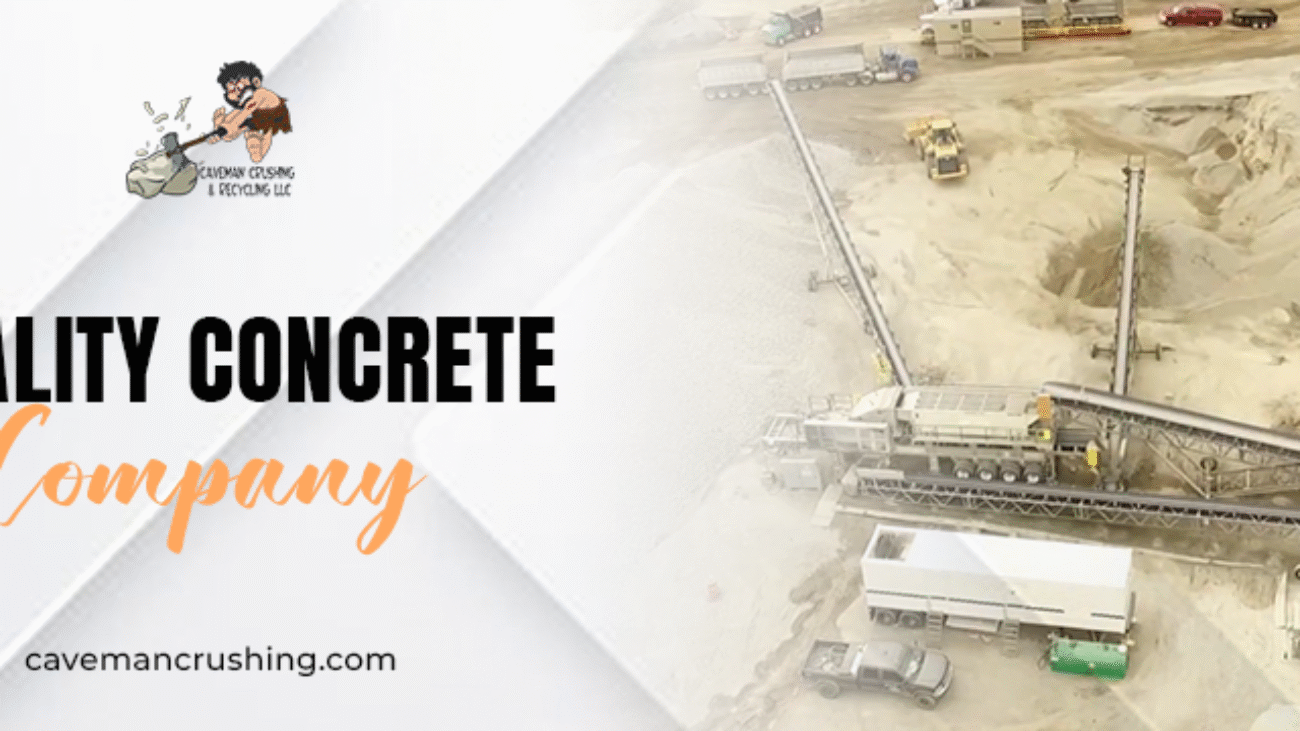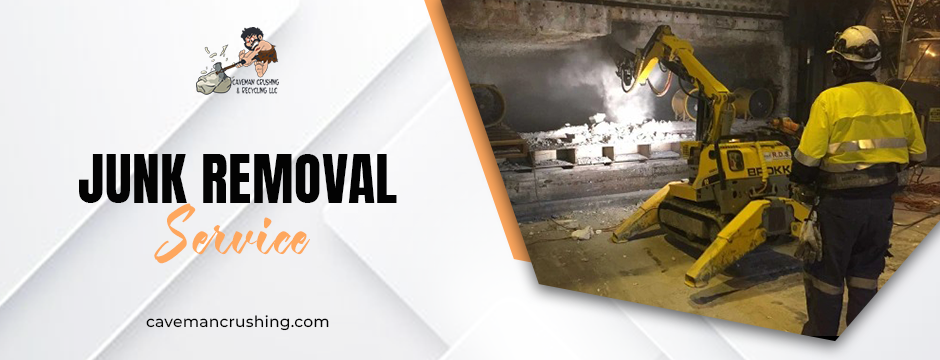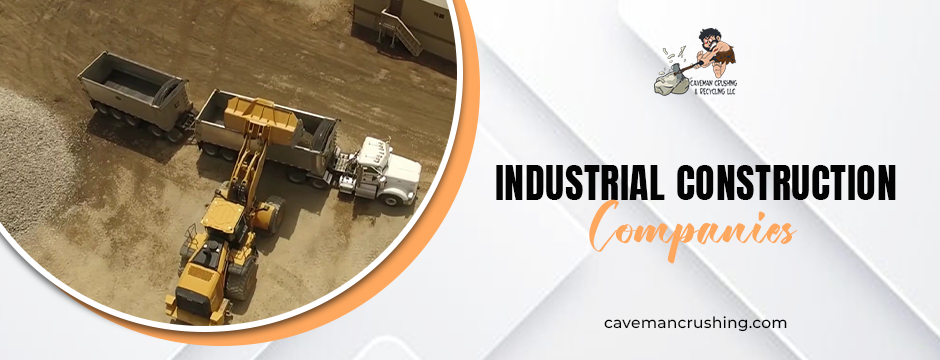In today’s fast-paced construction world, efficiency isn’t just a benefit—it’s a necessity. Whether you’re building residential foundations, paving commercial parking lots, or undertaking asphalt road construction, every step of the process impacts your bottom line. Among the materials rising in popularity for their cost-effectiveness and environmental advantages is crushed concrete. When paired with prompt and professional crushed concrete delivery, this recycled material becomes a game-changer in both time and money savings.
This blog dives deep into how crushed concrete delivery is reshaping modern construction practices and why it’s a smart move for contractors, builders, landscapers, and even homeowners.
What Is Crushed Concrete?
Crushed concrete is made from recycled concrete debris—such as demolished roads, sidewalks, driveways, and building foundations—that is broken down into reusable aggregate. Depending on the size of the aggregate, it can be used for various construction applications including sub-base layers, driveways, pathways, drainage systems, and more.
Recycling old concrete helps reduce landfill waste, supports environmental sustainability, and lowers material costs. But when you combine it with professional delivery, the true benefits multiply.
The Real Cost of Delays in Construction
Before we explore the specific benefits of crushed concrete delivery, it’s important to understand the hidden costs of logistical delays on a job site:
- Idle labor and equipment costs
- Rescheduled timelines and disrupted workflows
- Wasted resources from improper material storage
- Missed deadlines, penalties, or loss of future contracts
Getting the right material on-site, at the right time, in the right amount is essential to running a smooth operation. That’s where reliable crushed concrete delivery makes all the difference.
1. Eliminates the Hassle of Transportation
Transporting bulk materials like crushed concrete isn’t easy if you don’t have the right equipment. Renting trucks, hiring drivers, and managing logistics are time-consuming and expensive—especially for contractors juggling multiple sites.
When you opt for crushed concrete delivery, these challenges are handled by professionals. The material is loaded, hauled, and dropped exactly where you need it. No need to:
- Coordinate multiple pickups
- Rent heavy-duty transport vehicles
- Make multiple trips due to weight restrictions
This hands-off approach lets you focus on the project instead of the prep.
2. Reduces On-Site Labor
Time is money on any job site. Every minute your crew spends managing material logistics is time not spent on actual construction. With scheduled crushed concrete delivery, the material is placed strategically where it’s needed—reducing double handling, minimizing downtime, and boosting productivity.
Instead of wasting man-hours unloading trailers or shifting piles, your crew can immediately begin spreading, compacting, or mixing the crushed concrete into the job.
3. Bulk Purchasing Lowers the Cost of Crushed Concrete
When you arrange for delivery, you typically purchase crushed concrete in bulk. This not only ensures you have enough material for the job but also qualifies you for volume discounts, ultimately reducing your cost of crushed concrete per ton.
For example, buying 5 tons in small loads may cost significantly more (per ton) than arranging a full truckload delivery. In addition, some suppliers may waive or discount delivery charges for large orders, creating further savings.
4. Streamlines Project Scheduling
Coordinated crushed concrete delivery helps you maintain a strict project timeline. By working with a reliable supplier, you can pre-schedule your deliveries based on different construction phases—ensuring your site is never waiting on materials.
This scheduling efficiency is especially critical in asphalt road construction and large-scale infrastructure projects, where delays in the sub-base layer can push back the entire timeline.
5. Reduces Equipment Rental Time
Most contractors use compactors, graders, skid steers, or other equipment to spread and level materials like crushed concrete. These machines are often rented by the hour or day.
By having your material delivered on time and in the correct quantity, your equipment usage becomes far more efficient. You avoid:
- Paying for machines to sit idle
- Extending rental contracts due to delivery delays
- Rushing jobs and risking uneven surfaces
Timely delivery optimizes your rental periods and ensures peak productivity.
6. Cuts Fuel and Logistics Costs
If you choose to haul crushed concrete yourself from a supplier’s yard, consider the cost of fuel, wear and tear on your vehicle, time spent in traffic, and loading/unloading delays. All these factors impact your profitability.
When you use crushed concrete delivery services, you offload these expenses onto the supplier. They typically have optimized routes, bulk transport capabilities, and skilled staff—making the process more cost-efficient for everyone involved.
7. Ideal for Remote or Hard-to-Access Locations
Some job sites are far from urban centers or are located in challenging terrain. Hauling multiple loads of aggregate to such areas can be logistically complex and prohibitively expensive.
With delivery services, the material is transported using appropriate heavy-duty vehicles capable of navigating rough conditions, steep access roads, or undeveloped sites. This makes crushed concrete delivery a convenient and scalable solution for even the most difficult projects.
8. Better Inventory Management and Waste Reduction
When you have scheduled deliveries, you avoid the problem of overordering and leaving excess material on-site, where it can:
- Get damaged by weather
- Be contaminated
- Become a tripping hazard
- Result in unnecessary waste removal costs
Having materials arrive “just in time” helps you control site conditions and material waste, leading to long-term cost savings.
9. Supports LEED and Green Building Certifications
If you’re working on a project that seeks LEED certification or aligns with green building initiatives, using recycled materials like crushed concrete is a huge asset. And professional delivery ensures there’s clear documentation on:
- Source of materials
- Transportation routes
- Recycled content percentages
This transparency supports compliance with environmental standards and enhances the reputation of your construction company.
10. Enhances Professional Image
Reliable material supply reflects professionalism. When you consistently have the right amount of material on-site at the right time, your team earns the trust of clients, contractors, and inspectors.
Crushed concrete delivery contributes to that perception—removing hiccups, improving productivity, and presenting your operation as well-organized and forward-thinking.
Caveman Crushing & Recycling – Your Partner in Crushed Concrete Delivery
At Caveman Crushing & Recycling, we don’t just supply materials—we deliver peace of mind. Our team proudly serves the Northville and greater Wayne County area with fast, reliable, and affordable crushed concrete delivery. Whether you need 1×3 Crushed Concrete for drainage and erosion control or 21AA Crushed Concrete for road base layers, we’ve got you covered.
We offer:
- Prompt scheduling and flexible delivery windows
- Transparent pricing and material calculator tools
- Bulk discounts for contractors and repeat customers
- Friendly customer support and expert guidance
We believe in building smarter, greener, and faster. That’s why every truckload we deliver supports not just your project, but also a more sustainable future in construction.
Conclusion: A Smart Investment for Any Project
When you factor in labor savings, time management, equipment efficiency, and reduced material costs, the advantages of crushed concrete delivery are undeniable. In a competitive construction landscape, every dollar and hour counts. Choosing to have your recycled materials delivered directly to the job site isn’t just convenient—it’s a strategic investment.
Whether you’re paving a driveway or managing a multi-phase asphalt road construction project, using delivered crushed concrete gives you a critical edge.
Ready to save time, cut costs, and simplify your logistics?
Contact Caveman Crushing & Recycling today to schedule your next delivery or get a free quote. Let’s build a stronger tomorrow—efficiently and sustainably.


